Justice Unbound: Women, Religion and the State of Israel
CWJ’s Rivkah Lubitch and Susan Weiss take you behind the closed doors of Israeli Rabbinic Courts to reveal the real stories of women seeking justice under religious law in Israel.
Justice Unbound is made possible by the generous support of the Gimprich Family Foundation.
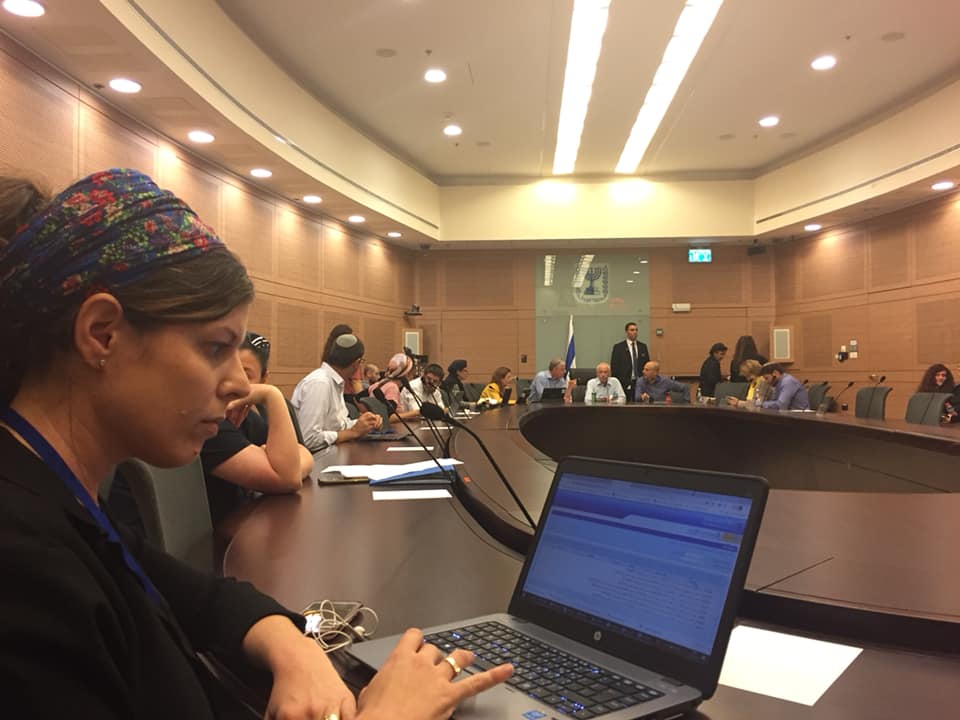
 Center for Women’s Justice and Miriam Anzovin’s pre-Shavuot event all about the Book of Ruth, how it connects to the practice of yibum and how these laws affect women today.
Center for Women’s Justice and Miriam Anzovin’s pre-Shavuot event all about the Book of Ruth, how it connects to the practice of yibum and how these laws affect women today.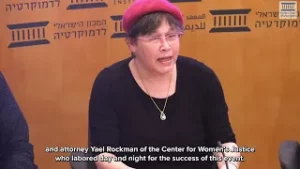 VIDEO SERIES: How does Israel’s laws on mamzer status affect the lives of children, mothers and fathers from both civil and religious perspectives? In a conference that was the first of its kind, CWJ’s Tears of the Oppressed Forum, in conjunction with the Israel Democracy institute, explored Israel’s mamzer problem with a focus on practical civil solutions.
VIDEO SERIES: How does Israel’s laws on mamzer status affect the lives of children, mothers and fathers from both civil and religious perspectives? In a conference that was the first of its kind, CWJ’s Tears of the Oppressed Forum, in conjunction with the Israel Democracy institute, explored Israel’s mamzer problem with a focus on practical civil solutions. CWJ Lunch & Learn, hosted by Stephanie Garry and Avra Gordis
CWJ Lunch & Learn, hosted by Stephanie Garry and Avra Gordis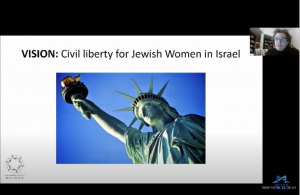 Hosted by Hiddush
Hosted by Hiddush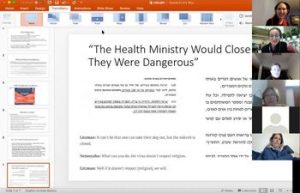
 A recent court decision prevented the municipality of the Israeli town of Afula from segregating a concert intended for the Ultra-Orthodox community. Should state-enforced segregation be legal if a community chooses it? Rachel Stomel of the Center for Women’s Justice discusses the legal ramifications on i24 News.
A recent court decision prevented the municipality of the Israeli town of Afula from segregating a concert intended for the Ultra-Orthodox community. Should state-enforced segregation be legal if a community chooses it? Rachel Stomel of the Center for Women’s Justice discusses the legal ramifications on i24 News.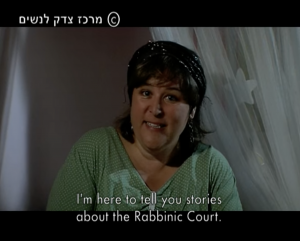 Savta Bikorta (“Grandma Critic”) is a series of satirical video clips in the style of children’s storytelling. The videos tell the story of real rulings issued by the the State Rabbinic Courts in Israel.
Savta Bikorta (“Grandma Critic”) is a series of satirical video clips in the style of children’s storytelling. The videos tell the story of real rulings issued by the the State Rabbinic Courts in Israel.